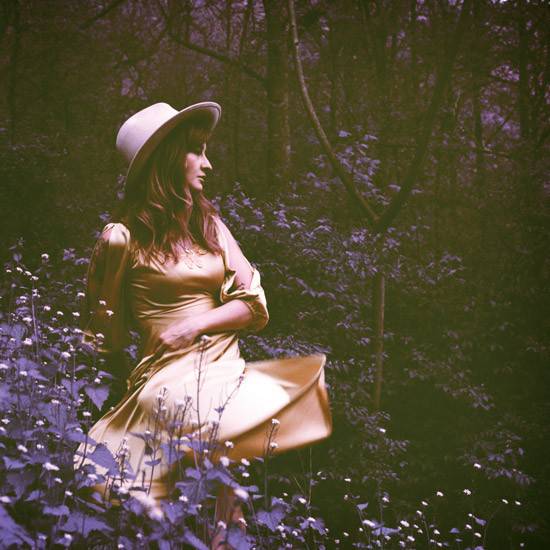Album Review: Margo Price’s “Midwest Farmer’s Daughter” is retro country-western
![]() It’s easy to hear what drew Jack White to bring Margo Price into the fold of his Third Man Records label. (It’s the first country album released on the label.) Her lyrics have a Loretta Lynn sass to them that must have reminded White of his work with the legendary country star. Price also has a voice with the strength of Dolly Parton: a belting, pronounced instrument that will attract the attention of anyone within hearing distance. Certainly a voice like Price’s will at least temporarily lift the attention of hipsters from their cellphone screens.
It’s easy to hear what drew Jack White to bring Margo Price into the fold of his Third Man Records label. (It’s the first country album released on the label.) Her lyrics have a Loretta Lynn sass to them that must have reminded White of his work with the legendary country star. Price also has a voice with the strength of Dolly Parton: a belting, pronounced instrument that will attract the attention of anyone within hearing distance. Certainly a voice like Price’s will at least temporarily lift the attention of hipsters from their cellphone screens.
What’s not clear, however, is who “Midwest Farmer’s Daughter” is for, though the title hearkens back to the Beach Boys’ list of appealing females in “California Girls.” One thing is clear, however: This is a singer’s record. Price’s clear voice is front and center in the mix of all the songs here; the instrumentation is almost an afterthought. But the style of the music is so evocative of the country music of the ’60s and ’70s that one is tempted to file this record away as some kind of novelty tribute.
The most obvious indication that this album was made in the 21st century comes through in the lyrics. Price wrote or co-wrote all the songs on the record, and she is clearly not interested in being put on a shelf for the admiration of redneck cowboys. Like Loretta, she can put a bite in her songs that lets you know she is no pushover. This comes across most effectively in “This Town Gets Around,” a kind of ode to the struggles of the unknown Nashville musician. “It’s who you blow that’ll put you in the show,” Price sings fiercely, and one wonders if her song is a warning to wannabes or a chronicle of what it takes to survive in Nashville these days. “I don’t write the shit that gets bought and sold,” she continues, proudly. “This Town” is a rollicking honky-tonk number, and there should be more of this kind of song on the album.
Unfortunately (or fortunately, depending on how much you crave this style of music), most of the rest of the songs here hearken back to good ol’ country-western. “Hands of Time,” the first song on the record is a litany of cheatin’, prayin’, and, er, farmin’, with a mid-tempo retro sound full of strings, plucked guitar, and a wash of organ at the end. Pedal steel and fiddle show up in several songs, too. This is comfort music for those who rue these modern times when country music is largely indistinguishable from pop or even rock. This is an album that evokes nostalgia at every turn. It was even recorded at Sun Studios, the birthplace of Elvis, Johnny Cash, and Roy Orbison.
The CD packaging also evokes the past. Price is pictured on the cover in a broad-brimmed Sunday hat and silk dress in a muted field of purple-tinted flowers. (One has to open the cover to see that Price has an upper-arm tattoo. Scandalous!) The lyrics are included on handwritten notecards, and the font style is straight out of the ’70s. You could hide the vinyl version of the album amid a stack of old country records and few would be able to tell it was released in 2016.
Additionally, many of the songs are filled with the kind of cliched phrases one often hears in early country music. In “About to Find Out,” Price falls back on easy moralizing. “I see the snakes in both of your eyes,” she taunts, but what is really new or edgy here? Not much, as it turns out. “Tennessee Song” opens with a bold, contemporary beat but quickly reverts to more traditional sounds. “The future ain’t what it used to be,” Price declares, in what could be a theme for the entire album. In “Since You Put Me Down,” Price offers her version of the classic cheatin’ song, warning her former lover that she has “Killed the angel on my shoulder / With a handle of tequila.” Woo, doggy!
The album ends limply with “World’s Greatest Loser,” the only song on the album to feature Price alone with an acoustic guitar. It’s an unsatisfying conclusion to a brash exercise in traditional country music. And though the album is a hoot, generally fast-paced, well played, and catchy, there’s really nothing new here. Price is not quite brave enough to do anything with her retro sound aside from reminding listeners of older records. If you like this kind of music, there is plenty of it here to enjoy, but it’s ultimately empty. But what a voice. Hopefully, Price will find something more interesting to say with it on her next album.
Articles related to “Album Review: Margo Price’s “Midwest Farmer’s Daughter” is retro country-western”
Interview: Mikalene Ipson discusses country music in Southern Utah
Album Review and Interview: Mandy Cook’s jazz-folk jewel, “See”




